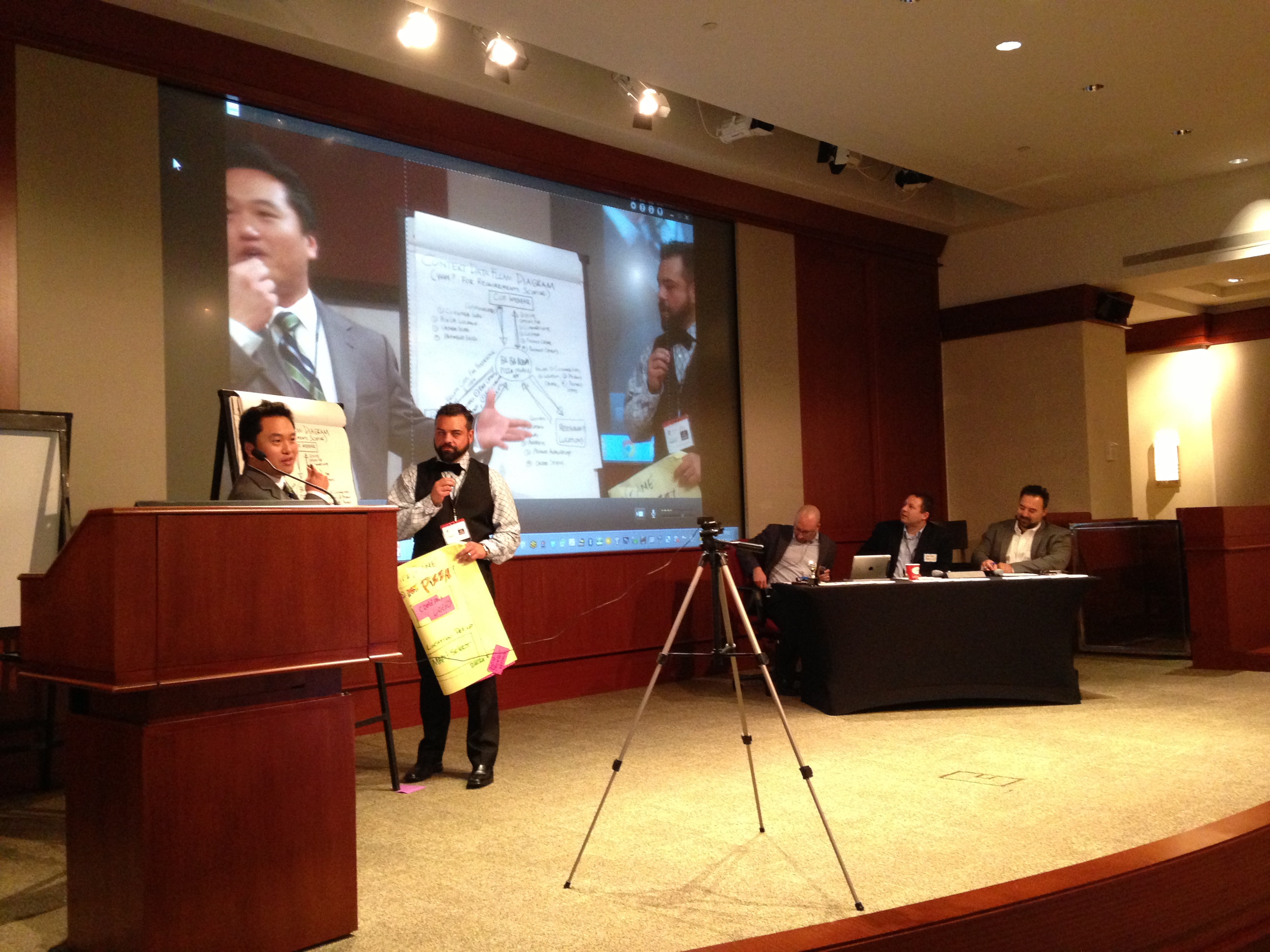Business analyst candidates often provide work samples such as documents, diagrams or presentations during the course of an interview, and I appreciate it when they do. Sample work adds credibility to the experience and skills listed on the candidate’s resume.
Often the sample work is of high quality, and casts the candidate favorably, which is no surprise, really, because for them to have been invited to interview, they will have already passed scrutiny of their first work sample – the resume they submitted upon application. I treat each candidate’s resume as a work product and hold it to many of the standards I would use to evaluate a project deliverable.
Why? A critical part of a business analyst’s job is to maximize the communicative value of documented deliverables. So to me, the resume is an example of the quality I might expect from the candidate’s written communication and documentation. And I assume that because the candidate wants the job, the resume is representative of the very best s/he can do.
Analysts should know better than anyone not to be long-winded and verbose in a resume. We all know how little our stakeholders appreciate a rambling requirements document. A business analyst candidate should know better than to use a bunch of filler/buzz words in a resume that can obscure meaning and require more effort than necessary on the part of the evaluator. A good BA resume should be clear, concise, and make it as easy as possible for the reader to glean the salient points.
Here are a few more quality checks or tips that I consider when evaluating the resume as a sample work product:
- Length – I don’t have a rule of thumb on length, although I tend to reward concise resumes and penalize overly long ones. The resume is more an executive summary than a detailed report. Redundancy, and detailed accounts of what the candidate has been doing for the last 20 years show a lack of sensitivity for the reader, and for the situation.
- Hyperbole and extraneous adverbs – “expertly managed”, “collaboratively liaised”, “capably scheduled”, etc. add no value, smack of exaggeration and are best avoided.
- Industry or company-specific jargon and acronyms that may not make sense to someone without additional context are inconsiderate, and take away from the communicative value of the resume.
- Tailored to the role
- Always make an effort to ensure that your listed experience and qualifications are applicable to the business analyst role and, when you can, further tailor it to the the particular company or industry. This shows a sensitivity for the importance of identifying and satisfying business need.
- If you’re coming from a different role, or most of your experience is in roles other than business analysis, emphasize the points that would add value as a business analyst and leave off the ones that don’t. Experience that isn’t pertinent to the role will almost certainly not get you in the door, but being perceived as long-winded because of it will probably keep you out.
There is much more that can be said about resume evaluation (I have barely touched on content!), and other hiring managers may have slightly different requirements and evaluation criteria, but I hope you’ll consider crafting your resume as if it were a sample of your best work as a business analyst, because that is quite possibly how the hiring manager will regard it!
In a situation where a manager is evaluating a number of similarly qualified candidates, the hiring decision often comes down to the “little things” as differentiators. I hope that taking the extra time to make sure your resume is not just representative of your experience and qualifications, but of the quality of your work will make a difference for you!






good article overall….
While I truly appreciate your view of the resume, the fact is that the resume will probably never make it past the screener program if it does not have enough of the “buzz words” and you will not see it. It is a shame but job seekers can spend four hours tailoring their resume to the job posting only to be reject by the screener in Taleo or another application as it mysteriously processes 500+ applicants down to a group of 10. it is almost like developing a scientific algorithm for choosing a winning lottery ticket.
Hi,
Wanted to say that writing a business analyst resume is not as simple as you may think lol. I have been a BA for about ten years and find it hard to balance on what to include and what not to. I enjoyed the post though. I used a site on business analyst training to help me write mine.
cheers-